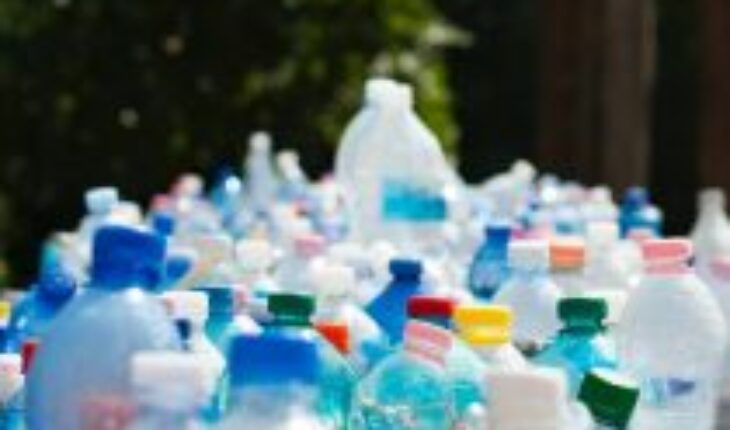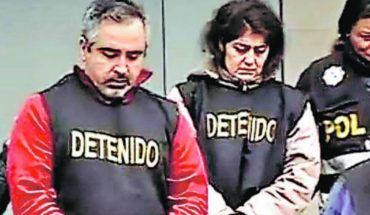We live in times of constant change. A tremendously positive one is a change of mentality in companies, where it is no longer enough to do business and generate profits at any cost, but respect for the environment and communities is increasingly relevant. The so-called sustainable enterprises emerge, where their focus and differential is on understanding that nature and the environment are not an inexhaustible source of resources and that, by not taking care of them, they also take away the fundamental rights of the communities.
Sustainable enterprises are of the utmost importance to slowly generate awareness at the local and global level about the importance of taking care of the planet and that the population really takes concrete actions to promote its care.
However, there is still a lot of ignorance and myths surrounding sustainable entrepreneurship: it is often believed that it can cost more to generate income and maintain the company, although this is far from reality. In fact, several experts say that the creation of these ventures generates new markets, new sources of income and also give a sustainable approach to the economy.
Another important point of these sustainable ventures is that they are not only a great contribution to the ecosystem, but they are indispensable for the community where they are created. They have a social role, because they seek cohesion between communities and cultures to achieve satisfactory levels in the quality of life. The same people in the community can work on the venture and introduce tourists to the attractions of the place where they are inserted.
Arístides Benavente, entrepreneur, member of the G100 and founder of the Patagonia de Aysén Foundation, sees the creation of this type of venture as indispensable and advises people who want to start in this area. “All activities (ventures) must be in harmony with people and nature. My advice is to be very careful and respectful of others and the environment, think that we are all part of the same thing and if we want to be sustainable, we also have to think about those who will come later. A great purpose helps a lot,” Benavente explains.
Sustainable entrepreneurship is gradually becoming a reality in Chile and it is essential that its growth continues to be exponential, in order to consolidate a new and clean way of creating companies and businesses in which the ecosystem is taken care of. That this trend that generates benefits for all involved be maintained.
Therefore, the evolution must be linked to the structural changes of a country, Chile has managed to generate legal instances that force environmental progress in organizations. Extended Producer Responsibility Law (REP), ISO certifications or B Companies are some of them, this allows an adequate monitoring and compliance with the internal policies of the companies.
“It is important, especially in young startups, that the commitment to the ecosystem is not only economic, to know that the actions you do as a company affect the first things, make services more expensive and harm our own subsistence,” says Francisco Leitao, Co-founder of LOMI, a startup with pillars in sustainability and local commerce.
In that sense, the experts mention some basic aspects to consider to start with the circular economy, use of renewable energies, recovery of resources, extension of the cycle of products and exchanges between users.
“It is important to keep in mind that each organization must take it to its way of working, however, the idea is the same, maintain, reuse and impact the entire process and limit as much as possible the negative externalities that we can produce. Improve recycling, less use of polluting elements and education above all, “closes Leitao.
Sustainable Packaging
With the impact of the new law on single-use plastics, Empaque Sustentable, a startup that is among the leaders in ecopackaging offer, has grown by 400% compared to the first quarter of 2021, managing to eliminate +250 tons of single-use plastic in Chile. Today they are in their first round of investment, focused on increasing their productive capacity to meet the growing local demand in Chile. In parallel, they are already beginning to prepare for expansion in Latin America by 2023 and provide sustainable solutions to the continent.
Sustainable Packaging is created year 2019 with the purpose of taking care of the environment from the design and development of compostable packaging made only of renewable raw materials. Focusing on a start in the delivery service, today they are also positioned in the food industry and mass consumption retail. In this way, also considering the impact of the plastics law and the positive effects that emerged from the quarantine, this impact startup has managed to generate high expectations, becoming a leading company in its area.
Regarding their business model, they help companies meet their sustainability goals (ESG) and eliminate plastic waste from their business by creating responsible consumption. Through the transformation service of their packaging supply chain, they manage to eliminate plastic garbage from the consumption of the brands by creating biodegradable packaging made of plants that can be degraded to be reused in a next production cycle.
Thanks to this model, they have achieved an accelerated growth of their sales, with a total sale in 2021 of US $ 600,0000 and in the 1st quarter of 2022 already in the U$400,000 of turnover in Chile.
This project began with an initial investment of 20 million (CLP), in which at the moment they have not yet had capital increases, so their work has brought a positive impact. In fact, today they are in their first round of investment, raising US$300,000 and billing more than one hundred million a month (CLP). Following this pace, they expect that by the end of the year this figure will grow to 150 million per month (CLP).
At the same time, within the next launches 2022 is to launch a line of products for fruits and vegetables that are displayed on supermarket shelves, thinking about the agricultural world. For its part, it seeks to expand in the market of the world of mass consumption, presenting packaging solutions for elements such as electronic, beauty and fashion items, reaching the retail and mass consumption channel.
Large companies also add sustainable initiatives
In this scenario, each time the concept of valorizing waste and implementing a circular economy has become more relevant. Recovery consists of making the most of a product, through recycling, reuse or recovery processes, giving them a new value. For its part, the circular economy refers to a system of resource use where the reduction of the elements is central, replacing the traditional cycle of manufacture, use and disposal.
In recent years, companies and state entities have put their efforts into promoting new environmental management instruments that facilitate the reuse of waste, or reduce it as much as possible. Waste that is moved to unauthorized destinations has a strong impact on pollution, which has been growing over the years.
“Therefore, there has been a very strong reflection on the part of all the actors regarding the viability of the use of those materials and substances that are discarded and that could be used again,” explains Jorge Cáceres, director of the Sofofa Environment and Energy Center. According to estimates made by the union, about 14 million tons of waste are generated annually on an industrial and mining scale in the country.
Recycling is also an issue that every year occupies an important place not only in people’s lives, but also keeps companies attentive to incorporate sustainability initiatives or innovate to solve the problems that waste management generates.
According to the UN, Latin America only adequately recovers 3% of this type of waste, a terrible reality if we also consider that Chile is the largest producer of electronic waste per person in the region, according to a report by the same body on Waste Management.
That is why the telecommunications company WOM -together with Sodimac and Triciclos- has been leading for several years an electronic recycling initiative that aims to be a contribution to this national reality, through the National Network of Clean Points for electronic waste. Thanks to this initiative, both in the 19 Clean Points of Sodimac -located in various regions of the country- since this program began in 2019 to date, more than 20 tons of this type of disused material have been collected.
“When we started this project in 2019 we managed to raise 2.2 tons. In 2021 we collected 284% more reaching 8.5 tons. This shows us that the disposition of companies is extremely relevant because they generate changes in behaviors. We are proud of the change and for that reason, this year we plan to reach 10 tons of electronic recycling, throughout Chile, “says Catalina Achermann, VP Corporat Affairsivos and Sustainability in WOM.
Towards a circular economy
The world is experiencing a paradigm shift in various aspects of life, which has changed basic aspects of everyday consumption. So much so, that according to the study “Chileans post crisis? walking to normality”, led by Activa, indicated that 75% of the interviewees are aware of consumption decisions and 60% made a change of the products they bought before the crisis.
Data that represent not only the new post-pandemic consumer profile, but a wake-up call to different organizations. “The concept of circular economy in the Chilean case refers to what is contemplated by Law 20,920, which seeks to generate some conditions for waste management, holding people accountable, starting with the most complex organizations. It is a natural process, but every time the economic system will be more circular, so this concept is understood and must be prioritized, “says Héctor Osorio, economist at PKF.
The instrumental evolution and regulations associated with waste management have been evolving from a mainly sanitary dimension, which sought in the middle of the last century, to ensure that the disposal or disposal was done in a controlled manner, to the REP law, which promotes the reduction in the generation of waste and encourages the recycling of those called “waste of priority products”, including: electrical appliances, batteries, packaging, newspapers and magazines, tyres, batteries, oils and lubricants.
“That law establishes a whole regulation in which those who put these products on the market have the obligation to generate a management system that is responsible for collecting waste and reinserting it into the economy, in order to reduce the amount of waste that goes to final disposal sites such as landfills,” says Cáceres.
The executive considers that the REP Law is a great step in the direction of promoting recycling and reuse. He also points out that the Roadmap for the Circular Economy, allowed to lay the foundations to go further since a relevant effort of regulatory modernization is required, such as, for example, in everything related to the recovery of industrial and mining waste.
Indeed, the current sanitary code has fulfilled the objective that materials categorized as waste do not end up anywhere but in duly authorized sites. But this approach, which comes from the middle of the last century, must give way to a new approach, which allows materials or substances with feasibility and technical aptitude for use, to be reincorporated expeditiously into the economy, as observed in developed countries.
For this reason, Sofofa set up a Circular Economy Committee, made up of companies from various sectors associated with the industrial sector, with the aim of working together to carry out a proposal for new instruments enabling valorization, which allows, for example, to classify as secondary products or industrial and mining by-products an amount of more than 8 million tons of materials and substances with technical aptitude for the substitution of materials. premiums of natural origin, with all the benefits that this implies, not only in terms of productivity but also in terms of reducing greenhouse gases.
Jorge Cáceres highlights the favorable reception that the work of the Committee has had in the authorities, so that it has led to collaboration agreements, whose implementation agenda is being outlined with the new government, after the ambitious objective set.
Sodexo is one of the companies that is part of this Committee, providing support in the realization of technical studies that allow progress towards the proposal. Today, the company supports its customers through a waste management service, which, explains Sodexo’s Head of Sustainability, Carolina Bustos, has quite high costs.
“The regulations in force in Chile for the purposes exposed have a mainly sanitary approach, and waste management is then approached from that direction instead of doing so from a more reuse-focused approach. So, in the Committee we have proposed to generate high-value antecedents that allow, together with the Ministry of the Environment, to reach a point where it is more economical to treat waste and give it a use than to take it to a landfill, “he explains.
Specifically, the company has two services: comprehensive waste management, which aims at zero waste, and the management of organic products, derived from food. “What we cannot reduce in food we manage, because the organic waste in landfill generates methane gas, which is the inve effect gas.”The most accelerating factor for global warming,” says Bustos.
Therefore, Cáceres emphasizes that to materialize the concept of circular economy it is necessary to make a public-private effort. “We have seen in developed countries a very fruitful collaborative effort, in which the private sector collects information of a high degree of specificity in terms of the typology of processes and the opportunities for valorization, while the public sector, making use of that information, implements regulations and other incentive instruments that make it viable.”
Within this framework, the collaboration organized by Sofofa finally seeks to develop studies and pilot projects of a demonstrative nature, which facilitate the public sector to address the design and implementation of the enabling instrumental development that is so necessary.
“Our commitment in the Circular Economy Committee is to take the lead in the provision of inputs to the Ministry of the Environment and all the public actors involved, so that they can implement short, medium and long-term instruments that allow not only to capture the concept of circular economy in the country, but to achieve all the benefits in sustainability that this is associated. That is the great objective of our participation”, concludes Carolina Bustos
Follow us on





